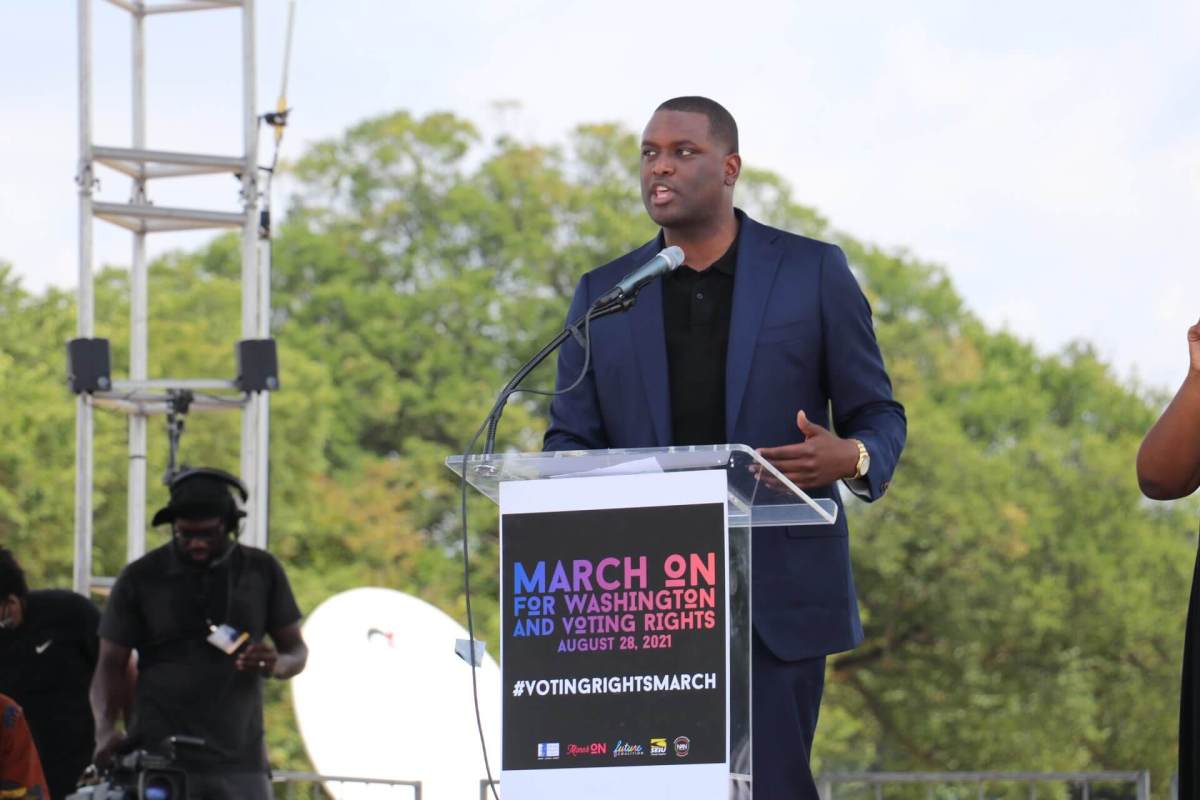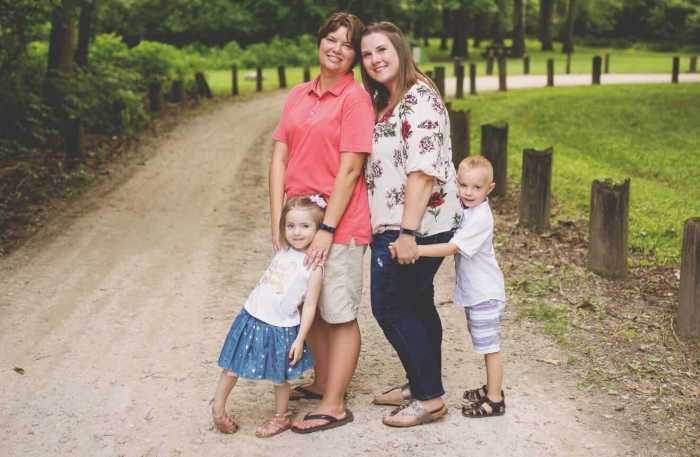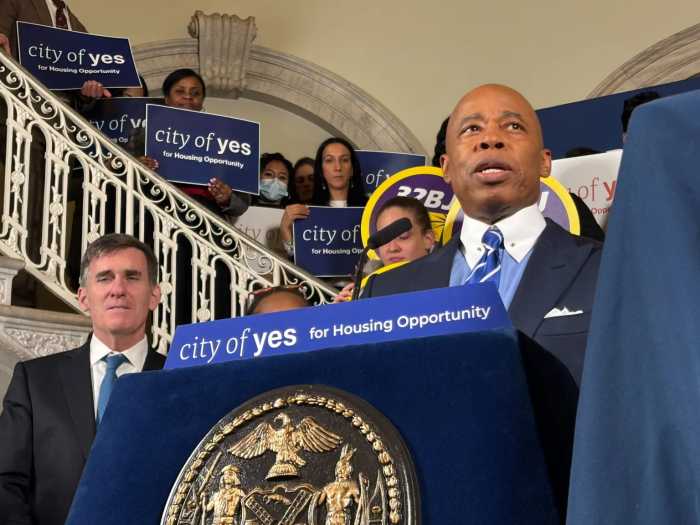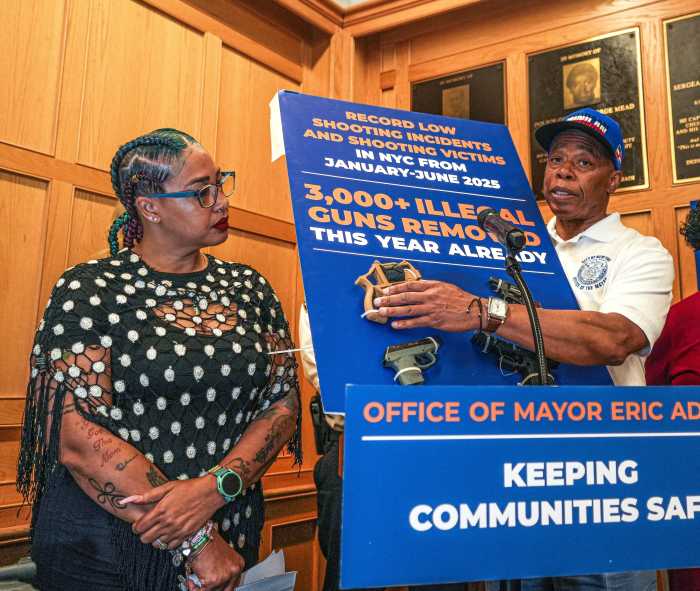The Supreme Court’s ruling overturning abortion rights on June 24 prompted a wave of warnings from LGBTQ members of Congress and national queer groups after Justice Clarence Thomas used his concurring opinion to threaten rulings on marriage equality, sodomy, and contraception.
Thomas, a longtime foe of LGBTQ rights, expressed his own desire to see the court take aim at the queer community as he called on fellow justices to “reconsider all of this court’s substantive due process precedents, including Griswold, Lawrence, and Obergefell.” Griswold v. Connecticut struck down a state law banning contraceptives, Lawrence v. Texas established the right to have gay sex, and Obergefell v. Hodges brought same-sex marriage nationwide.
In a statement on behalf of the Congressional LGBTQ+ Equality Caucus, Congressmember David Cicilline of Rhode Island suggested that the evisceration of abortion rights could be the beginning of a broader assault other rights.
“If the Supreme Court is willing to reverse decades of precedent and strip away a fundamental constitutional right, no right is safe,” Cicilline said in a written statement.
Congressmember Mondaire Jones, speaking to Gay City News shortly after the ruling, described the Supreme Court’s decision as “devastating, yet unsurprising,”
“As someone who is both Black and openly gay, it is not lost on me that this far-right majority is next coming for the right to same-sex rights, contraception, and marriage equality,” said Jones, who represents Rockland County and parts of Westchester County but is now running in the redrawn 10th Congressional District. “It has already dismantled the Voting Rights act, which was the greatest legislative achievement of the Civil Rights era.”
Jones argued that it is not too late for lawmakers to take action, but he believes any moves must be forceful and swift rather than incremental. His colleagues in the Democratic Party, he said, “cannot reasonably expect our Republican colleagues in the House or the Senate to protect any of their rights.”
Jones reiterated his existing calls for the Senate to abolish the filibuster and he further called on lawmakers to etch abortion rights into federal law. But he also said he has little confidence that any such law — even if it clears the Senate — would hold up at a time when the Supreme Court is made up of a conservative majority.
“When it comes to the role of the legislative branch of government, I think the Supreme Court would strike down the Women’s Health Protection Act even if we get it through the Senate,” said Jones, who argued that the “only real solution” is the expansion of the Supreme Court.

Out gay Congressmember Ritchie Torres of the Bronx told Gay City News he agrees with the approach of expanding the Supreme Court, which he described as “largely nominated by a president who lost the popular vote and then confirmed by a Republican Senate that lost the popular vote.”
The House of Representatives, he acknowledged, already passed abortion rights legislation as well as the Equality Act, which would update federal civil rights law to include LGBTQ protections. But those measures mean little if they fail to advance in the upper chamber.
“I call upon the Senate to do the same,” he said. “The Senate must follow the lead of the House.”
Another out New York lawmaker, Representative Sean Patrick Maloney of the Hudson Valley, echoed the concerns about the future of the Supreme Court.
“Today’s appalling decision to strike down Roe v. Wade means women in America will have fewer rights than their mothers had,” Maloney said. “Republicans and their activist judges want to take our nation backwards and rip away not only reproductive freedoms, but also gay marriage and other rights we have fought so hard for as a nation.”

Many LGBTQ members of Congress outside of New York were just as displeased with the court’s decision. Congressmember Angie Craig of Minnesota made the case that the government should not intervene in the health decisions between doctors and their patients.
“We saw in that disgusting opinion that they’re next coming after a number of other freedoms that we enjoy in this country today, including my own right to [have] a family,” Craig said in a video posted on Twitter.
Out lesbian Senator Tammy Baldwin of Wisconsin did not immediately respond to a request for comment, but issued a written statement denouncing the Supreme Court’s ruling.
“Republicans have taken Wisconsin women back to 1849 and it is Republicans who want to keep us there with support for having politicians interfere in the freedoms of women who will now have fewer rights than their mothers and grandmothers have had for decades,” Baldwin said.
Out bisexual Senator Kyrsten Sinema of Arizona, who has publicly resisted efforts to gut the filibuster, posted a statement on Twitter saying the decision “endangers the health and well-being of women in Arizona and across America.”
“Throughout my time in Congress, I’ve always supported women’s access to health care, and I’ll continue working with anyone to protect women’s ability to make decisions about their futures,” Sinema said.
LGBTQ legal groups rushed to condemn the ruling almost immediately. The Human Rights Campaign, which has also played a role in legal battles for LGBTQ rights, said on June 24 that Thomas “had some alarming things to say about Obergefell v. Hodges and Lawrence v. Texas, but he only spoke for himself.”
“Our fight right now is centered on ensuring people still have access to the abortion and reproductive services they need, but make no mistake: We will not back down from defending the progress we have made and keeping the fight for full LGBTQ+ equality going,” HRC said in a Twitter post after the ruling.
Jennifer Pizer, who serves as the acting chief legal officer for Lambda Legal, a major LGBTQ legal group, described the ruling as “incalculable” and warned that people will die as a result.
“These bedrock rights of freedom and equality have been critical to the rights to privacy about other medical decisions, the freedom to use birth control, of interracial couples to marry, and transgender rights, as well as to Lambda Legal’s victories in Lawrence v. Texas and Obergefell v. Hodges,” Pizer wrote. “The Court’s assurances today that the only liberty at issue is the freedom not to continue a pregnancy, provide little comfort given the now-obviously-hollow assurances offered in Senate confirmation hearings that abortion rights are settled law.”



































